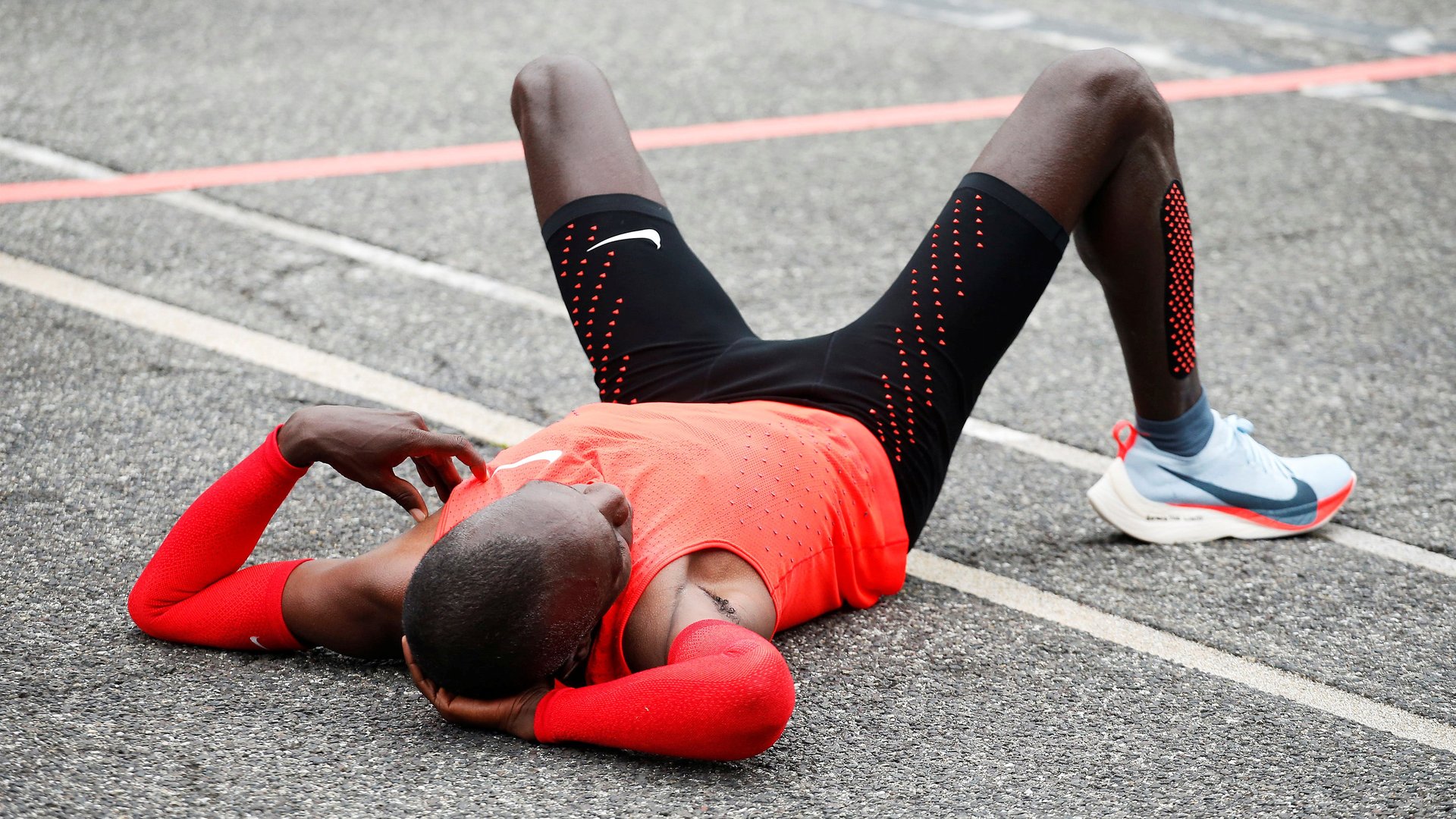Even in Nike’s specially rigged race, runners couldn’t break the two-hour marathon mark
Eliud Kipchoge began today’s race with a calm smile. For two years, he had been preparing to smash the world record and finish a marathon in under two hours, in the controlled settings of the Monza Grand Prix circuit alongside a group of pacing runners who were shielding him from the vagaries of nature.


Eliud Kipchoge began today’s race with a calm smile. For two years, he had been preparing to smash the world record and finish a marathon in under two hours, in the controlled settings of the Monza Grand Prix circuit alongside a group of pacing runners who were shielding him from the vagaries of nature.
The Kenyan ended the race with the same calm smile, but he couldn’t achieve the feat. Kipchoge timed 2:00:24, missing the mark by 25 seconds. “Thank you for lending me your bodies and minds,” he said to the pacers who ran with him. “This is history.”
Though Kipchoge’s final time is the fastest marathon ever run, it won’t count as a world record because of his use of pacers.
The fastest marathon ever in natural conditions was run by Dennis Kimetto in 2:02:57 in the 2014 Berlin race. Kipchoge’s personal record is 2:03:05, set at the 2016 London marathon. To beat the two-hour mark, Kipchoge would have had to increase his speed by 3%—a feat many scientists believed was humanly impossible, and they seemed to have been proven right.
Nike had paid Kipchoge, Zersenay Tadese of Eritrea, and Lelisa Desisa of Ethiopia to forego the London and Berlin marathon to focus on this event. The company had also deployed an army of scientists, trainers, nutritionists, and medical staff to help the three runners. Tadese finished the race in 2:06.51 and Desisa in 2:14.10.
Kipchoge started falling behind the record-setting pace around the 30km mark, and the gap kept increasing with every kilometer he ran. Nike’s rival Adidas is preparing runners to break the two-hour mark in natural race settings.
“It’s the last big, once-in-a-generation barrier… It will impact the way runners view distance running and human potential forever,” said Sandy Bodeckar, Nike’s VP of special projects. Maybe some day it will be broken.